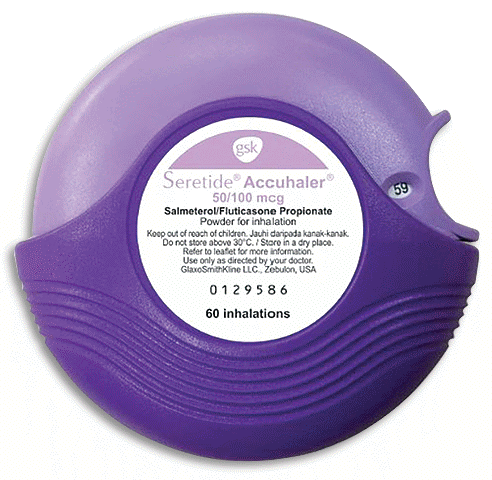Use generic alternatives to Seretide and save millions, advises NICE

The generic drug, montelukast should be offered to people ahead of combination inhalers such as GlaxoSmithKline's Seretide, in a bid to save the NHS millions of pounds, according to draft guidance from NICE.
In draft guidance, out for public consultation, NICE said earlier use of the 7 pence per day tablet could save the NHS £3 million per year for every 10,000 people who take up the new recommendation.
There are 4.5 million people in England receiving treatment for asthma, according to the charity Asthma UK.
Current practice is to offer people who are newly diagnosed with asthma a reliever inhaler (normally a beta 2 agonist) to use whenever they have symptoms.
If their asthma is poorly controlled, and they need to use a reliever more than three days a week or symptoms keep them awake at night, then they are given a preventer in addition (normally an inhaled corticosteroid).
If their asthma continues to be poorly controlled, two-in-one combinations such as Seretide (salmeterol and fluticasone) are often given.
But NICE is now advising for the first time that a leukotriene receptor antagonist (LTRA) tablet such as montelukast should be offered before more expensive combination treatments such as Seretide.
It said the evidence for combination inhalers and LTRAs shows that they are both clinically effective when used as a step-up treatment.
Due to its lower price, NICE’s independent guideline committee concluded that LTRA was significantly more cost-effective and would be better value for money for the NHS.
If a person’s asthma remains uncontrolled with LTRAs then they can add or move to combination inhalers. Children under five should be referred to a specialist if adding LTRA has not controlled their symptoms.
The guidance will be for anyone who has poor control on a preventer and needs additional treatment. People already using a combination inhaler will not need to switch if it is working well for them.
Professor Mark Baker, director of the NICE centre for guidelines, said: “We recognise that these new recommendations represent a change to current practice. However it is a change that is likely to save the NHS millions each year. We now want to hear from all those who provide care for people with asthma in the NHS to ensure that the views of those this guidance will affect are fully considered.”
The draft guideline also covers how to help people self-manage their condition. It recommends that people are offered a written plan with details of what triggers their asthma, how to adjust their medicines and when to seek help.
It also sets out when to consider reducing treatment and how health professionals should work with people to make sure they are seen regularly.
The draft guideline is out for public consultation until mid-February.












